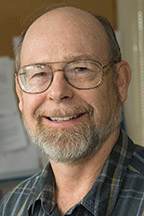 Department
DepartmentThe Ecosystems Center
OrganizationMarine Biological Laboratory
Emailpeterson@mbl.edu
Location
Woods Hole , Massachusetts 02543
United StatesBio
The theme of Dr. Peterson's research is the general topic of aquatic productivity and biogeochemistry. He studies the cycles of water, carbon, nitrogen, phosphorus and sulfur at the process, ecosystem and global levels. The goal is to develop understanding of ecosystem behavior that is relevant to the management and prediction of ecosystem properties in the face of local and global change. Current research includes studies of the food web structure and biogeochemistry of Arctic streams and rivers, nitrogen cycling in headwater streams and estuaries, and the impacts of climate change on the freshwater cycle of the Arctic. Recently our research team discovered an increasing trend in river runoff from Eurasia to the Arctic Ocean that has important climate change implications. The thermohaline circulation of the global ocean is controlled in part by freshwater inputs to northern seas that regulate the strength of North Atlantic Deep Water formation by reducing surface seawater density. The observed and projected rates of increase in freshwater runoff could potentially disrupt ocean circulation if global temperatures rise by 3 to 4C over this century as forecast by the IPCC 2001 report. In his current projects he is measuring the chemical signatures of major arctic rivers of North America and Eurasia in order to trace the circulation of these freshwater inputs in the Arctic and North Atlantic Oceans. Discovering the sources of freshwater responsible for reducing the salinity of the North Atlantic Seas is one key to predicting the probability of climate change caused by shifts in the North Atlantic thermohaline circulation.
